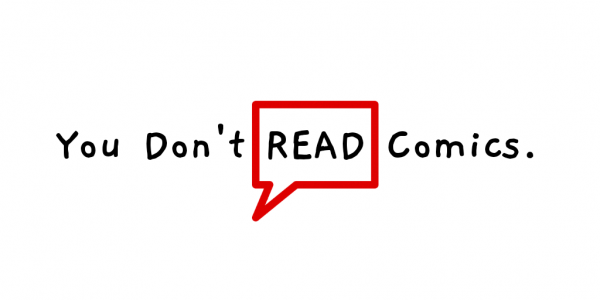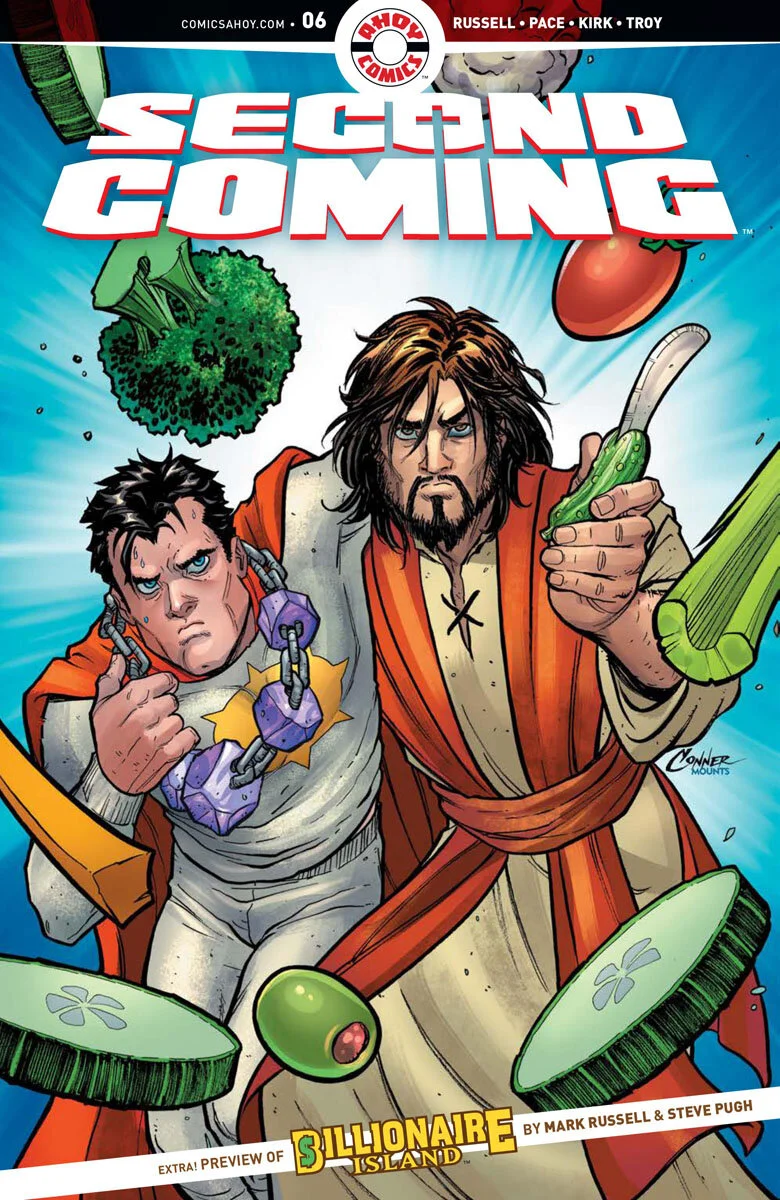Second Coming #1 // Review
Even before its publication, Mark Russell and Richard Pace’s Second Coming has been the subject of speculation and discussion. Originally slated to be published through DC Comics’ now-defunct Vertigo imprint, DC returned the publication rights to Russell and Pace in February after some right-wing backlash to the concept of the book. Now finally seeing publication through AHOY Comics, can the book possibly live up to the controversy? The answer is yes.
This first issue follows God and Jesus from the Garden of Eden to the present day, through events like the crucifixion, setting up the premise of the book: God sends his son back to Earth, this time to live with Sunstar, the world’s greatest superhero (a thinly-veiled Superman analog) in the hopes that Jesus can learn something from his new super-roommate. In their first adventure together, Jesus and Sunstar find themselves at odds, as Sunstar’s brand of justice doesn’t mesh with Jesus’ doctrine of healing and forgiveness.
The ground covered here is not newly-trod, particularly not in the wake of Good Omens, but Russell still manages to make the ideas seem fresh and interesting. Russell asks two big questions here. First, what would Jesus think of a world that claims to worship him but has forgotten all of his teachings? And second, does the form of justice shown in superhero fiction actually accomplish anything besides maintaining the status quo? Russell has asked this second question recently in his Wonder Twins from DC, but this seems to be a better vehicle for exploring the idea than a book set in an established superhero universe. Russell efficiently mines the concept and the questions for comedy, especially with his surprising characterization of God Himself.
Artist Richard Pace’s compositions and character designs are gorgeous and tell the story extremely well. Pace uses a lush, highly detailed style for all of the sequences taking place in heaven or in the past, which is extremely effective. For the present-day Earth sequences, Pace is joined by finisher Leonard Kirk and colorist Andy Troy for a cleaner style that looks more like a standard superhero book; an appropriate choice for the subject matter, though not quite as interesting. Letterer Rob Steen has a lot to play with, with scripture-like captions and giant robots appearing in the same book, pages apart.
The first issue of Second Coming introduces the themes and characters and raises some big questions. It’ll be interesting to see how it goes about answering those questions in subsequent issues. In the meantime, it’s clear that DC’s loss is AHOY’s gain with this compelling first issue.









